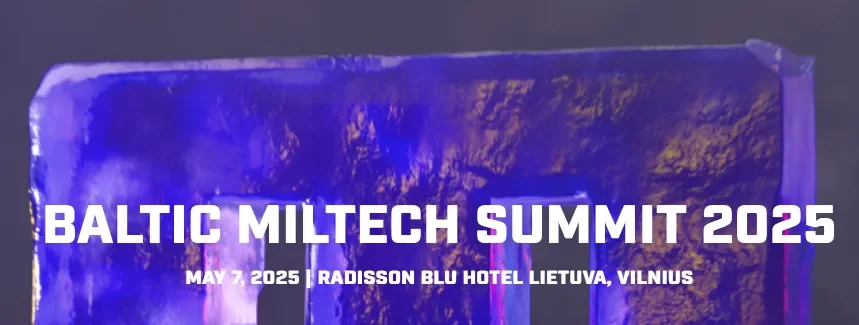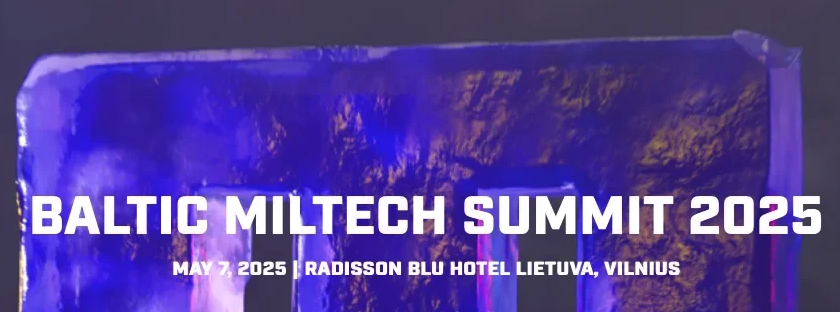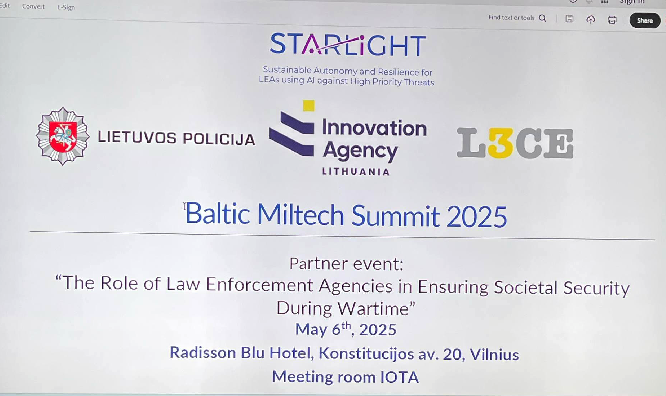COcyber attended the Baltic Miltech Summit 2025: Strengthening Civil-Military Readiness in the Baltics

The Baltic Miltech Summit 2025 brought together top representatives from Lithuanian defense institutions, police, civil protection agencies, and Horizon-funded technology projects to explore how innovation can support national preparedness in times of crisis. The event, hosted in Vilnius and attended by 20–30 participants, sparked crucial conversations around hybrid warfare, total defense strategies, and the integration of advanced digital tools for law enforcement and emergency response.

For COcyber, represented by our consortium partner INFOBALT, the summit served as a valuable opportunity to engage with key stakeholders across the national security ecosystem and exchange insights on how EU-funded innovation can support both military and civilian resilience. During networking sessions, COcyber representatives explored potential synergies, notably around cyber threat response, emergency communication systems, and public-private partnerships.
However, a clear challenge emerged: governmental institutions often operate under strict constraints regarding information sharing. While the COcyber team was able to highlight its vision and explore future cooperation avenues, the limitations on data exchange highlighted the need for more flexible legal frameworks and cross-border alignment in digital defense collaboration.
From AI Surveillance to Crisis Coordination: Key Takeaways
The summit’s agenda underscored the urgent need to strengthen Lithuania’s wartime readiness through both technological and organizational means. Highlights included:

- Police and Civil Defense Roles: From managing evacuations to securing critical infrastructure, Lithuanian police forces are expected to expand their roles in the event of war. Yet, much of the planning remains theoretical, with major gaps in equipment, training, and legal clarity.
- Emergency Response Challenges: The 112 Emergency Response Center shared its wartime continuity strategy, stressing vulnerabilities in centralized call systems and the importance of remote operations and reinforced data centers.
- AI for Security and Crisis Management: Several EU-funded initiatives presented tools to support crisis decision-making. These included LeadPro, enhancing law enforcement coordination; ReBriNet, enabling real-time situational awareness; and HIPSTER, pushing OSINT capabilities to tackle hybrid threats.
- Information Warfare & Disinformation: The summit closed with a sobering discussion on media trust, the risks of unauthenticated messages during crises, and the need for European alternatives to platforms like Starlink.
As hybrid threats continue to blur the lines between peace and conflict, events like MilTech Summit are important to foster cross-sector dialogue and preparing for what some speakers referred to as an inevitable “Day X.”
For COcyber, the summit was both a platform to present its mission and a reminder of the systemic, legal, and operational hurdles that must be overcome to truly integrate innovation into national security frameworks.